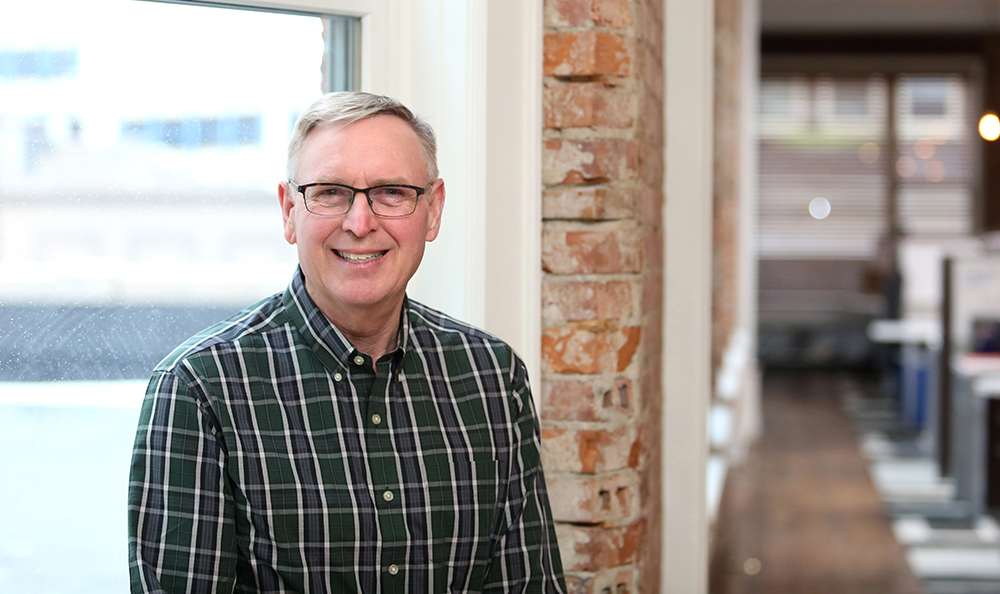One surprising way I became a superstar at work

By Dave Jansa, program advisor & peer coach
Published May 22, 2019
The rhetoric and media coverage surrounding alcohol addiction often paints a misleading picture. DUIs, loss of employment and family, even homelessness – these consequences of addiction absolutely happen, but they don’t represent my story.
The early signs of addiction are more subtle and therefore go undetected, because none of the “typical” legal, family or work consequences present themselves.
This fundamental misunderstanding played a big part in me avoiding the problem for as long as I did. I rationalized and drew lines around my behavior so I didn’t have to seek help. One of the lines I drew was I wouldn’t call in sick to work because I was hungover. As long as I didn’t do that, I rationalized, my drinking couldn’t have been that bad. I’ve seen similar rationalizations time and time again in the years as a coach since then – “As long as I don’t do X, I’m OK.” A pretty common one is not drinking before 5 p.m., or only drinking on weekends.
Even though I didn’t break my rule for several years, I still wasn’t my best self, especially at work. Before I got well, my work was average. I was getting by, doing what I had to do, but I wasn’t a very reliable or engaged employee.
I went to work brutally hungover many times. My sleep quality was poor, so I was tired or at least distracted and unfocused most work days. I suffered through headaches, nausea and other physical symptoms, but living without alcohol terrified me. I simply couldn’t comprehend a happy, fulfilling life without it, even though the opposite would eventually prove true.
My drinking was over the top, but I didn’t stand out. A lot of my coworkers were part of the same unhealthy culture; heavy drinking was accepted and often promoted among my sales cohort.
This continued for several years. I knew alcohol was a problem for me, but I was reluctant to give it up completely. I tried, and failed, at harm reduction multiple times. Those failures sent me a message, because I clearly couldn’t cut back like I wanted to.
Once I finally abstained from drinking entirely, I became a much happier, fulfilled person and employee. My transformation was subtle at first, but remarkable. I had more clarity and purpose at work, and ultimately became a valuable member of the team. I sold more product, fostered relationships with clients and coworkers, helped innovate products and was even awarded top salesman worldwide one year.
Even though I didn’t experience those “typical” – or rather, expected – alcohol-related consequences like legal trouble and family ultimatums, abstaining from alcohol made an incredible difference in my life. I thought to myself, “There must be so many people out there, just like me, who could benefit from help but don’t think they need it.”
Around the same time I had this realization and became more curious about my experiences, I found Face It TOGETHER. I wanted to get involved and see if I could help others overcome addiction, just as I had. Thankfully, I was granted that opportunity as a peer coach.
My story is very common. There are millions of people whose lives are deeply and negatively impacted by drug use. When you add loved ones to the mix, that figure grows exponentially. The annual costs of addiction, especially to employers, are difficult to comprehend.
That’s what I try to get across to business leaders who doubt addiction is a problem in their companies. The reality is that the early stages of the disease are difficult to identify. There are so many people who are just like I was – adequate, but not meeting their full potential.
We need to educate ourselves about the early signs of addiction and problematic drug use. The earlier the problem is addressed, the better. That’s why Face It TOGETHER partners with employers to provide an effective, personalized solution for employees impacted by addiction.
